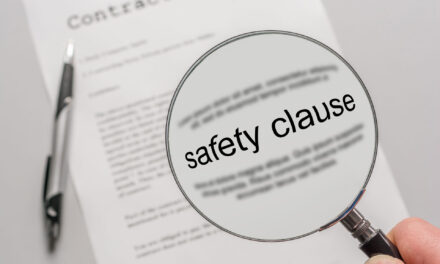As of April 1, 2020, the experience requirements for appraisal trainees have been reduced. Under the change, applicants for the residential (AL) appraisal license no longer need to categorize their experience.
Previously, new appraisers needed to obtain a combination of experience divided into specific hourly quotas, which included:
- carrying out several instances of the full appraisal process under the guidance of a supervising appraiser;
- completing a work log;
- reviewing others’ appraisals; and
- assisting in preparing appraisals.
Now, trainees simply need to log and submit their Uniform Standards of Professional Appraisal Practice (USPAP) compliant appraisal reports and appraisal review reports completed under a supervisory appraiser. This is on top of education and examination requirements.
The supervisory appraiser needs to review and accept responsibility for all of the trainee’s appraisal work. They may have no more than three trainees under their supervision at one time, though a trainee may have more than one supervisory appraiser.
California’s dwindling appraiser population
The goal of the change is to simplify the application process for new appraisers, according to the Spring/Summer 2020 Bureau of Real Estate Appraisers (BREA) Newsletter.
A simpler application process is likely meant to pave the way for more trainees at a time when California’s appraiser population is declining rapidly.
With 9,835 appraisers currently licensed by the BREA, the number of licensed appraisers is the lowest since the BREA began recording the appraiser population in 1993. Further, only about 80% of today’s licensed appraisers are active.
The main reason for the decline is the wave of retiring appraisers, which has not been relieved by new licensees. Early career appraisers in their 20s and 30s make up only 11.5% of the total appraiser population, while 38% of the population is near or past retired, at age 60 or above.
However, simplifying the application process ought not to be at the expense of robust experience requirements. Moreover, it’s unlikely a potential new appraiser is going to decide whether or not to complete a trainee program based on whether or not they need to categorize the experience in their application.
The old, more complex appraiser trainee requirements have protected homebuyers and sellers from inexperienced appraisers, who have the ability to derail sales, mislead lenders and set false home value expectations. Broader experience requirements have the potential to cause great detriment not just to individual appraisers, but the housing market as a whole — especially when so few appraisers are responsible for California’s real estate transactions. Therefore, this change will leave more of the training up to the responsibility of supervisory appraisers, who will need to ensure trainees become fully proficient before releasing them onto homebuyers and sellers.
This is just one in the line of many appraisal requirements that have trickled in over the past decade to the detriment of homebuyers. In 2019, the home sale threshold for an appraisal exemption was raised from $250,000 to $400,000, meaning many low-tier homes no longer require an appraisal, opening up homebuyers to the possibility of overpaying. In 2020, some appraisals have been delayed until after the transaction closes as a result of COVID-19. This all follows the shift to appraisal management companies (AMCs) following the Millennium Boom’s bust, which have increased appraisal costs for homebuyers and reduced appraisal fees for appraisers.
Now, it will be largely up to – not the BREA – but lenders and the AMCs to check any new appraisers who may have less experience than is necessary to successfully evaluate property values. Given their track record on that front, we’re not holding our breath for stricter appraiser standards anytime soon.
Related article:
Change the law: Require an apprenticeship period for new agents














